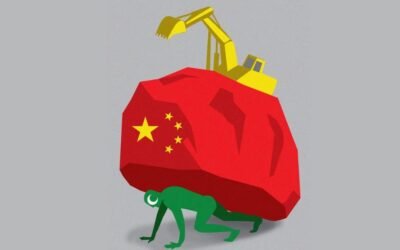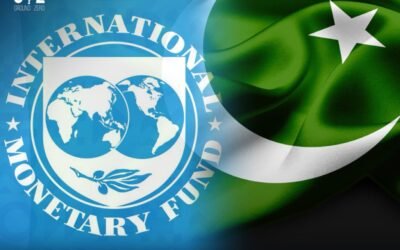Pakistan is in the midst of a significant foreign policy recalibration, shifting its focus from a historically narrow framework to a more diversified and multi-vector approach. This evolving strategy is driven by a desire to gain greater strategic autonomy and capitalize on new economic opportunities. At the heart of this shift lies a deliberate effort to strengthen ties with the Global South and to become a more active participant in emerging economic and political blocs, most notably the Shanghai Cooperation Organization (SCO). This new diplomatic game is not a rejection of traditional alliances but rather an expansion, designed to secure Pakistan’s interests in an increasingly multipolar world.
Redefining Alliances: Pakistan’s Global South Outreach
For much of its history, Pakistan’s foreign policy was heavily influenced by its alliance with the United States and its strategic rivalry with India. This created a geostrategic approach that often overlooked potential partnerships in other parts of the world. However, a new understanding of global power dynamics has prompted Pakistan to look beyond these traditional confines. The Global South, a term that encompasses developing nations in Asia, Africa, and Latin America, represents a vast network of potential partners with shared interests and developmental aspirations. This outreach is a cornerstone of Pakistan’s geo-economic shift, which prioritizes economic diplomacy and trade over purely security-centric concerns.

Pakistan’s engagement with the Global South is multifaceted. Economically, these nations offer a significant market for Pakistani goods, from textiles to agricultural products. Strengthening these ties can help Pakistan diversify its export base and reduce its dependence on a few key markets. Diplomatically, this strategy provides Pakistan with a wider platform to voice its concerns and build consensus on issues such as climate change, poverty alleviation, and international law.
Organizations like the Group of 77 (G77) and the Non-Aligned Movement (NAM) serve as crucial forums for this collaborative diplomacy. This strategic spin allows Pakistan to project a more independent image on the world stage; fostering relationships based on mutual respect and shared development goals. It’s a pragmatic recognition that its future prosperity is intrinsically linked to the collective growth of the developing world.
SCO, and Beyond: Engaging Emerging Economic Blocs
Perhaps the most tangible manifestation of Pakistan’s new diplomatic game is its deepening engagement with emerging regional blocs. The Shanghai Cooperation Organization (SCO) is a prime example. As a full member, Pakistan has secured a vital platform for cooperation on security, economic development, and cultural exchange with key Eurasian powers, including China and Russia. The SCO’s focus on countering terrorism and separatism aligns directly with Pakistan’s national security interests, providing a framework for regional cooperation on these pressing issues.
Beyond security, the SCO offers significant economic opportunities for Pakistan. The organization facilitates trade and investment among member states, and Pakistan can leverage this platform to access the vast markets of Central Asia and Russia. The China-Pakistan Economic Corridor (CPEC), a flagship project of China’s Belt and Road Initiative (BRI), is a central component of this strategy. CPEC is not just about connecting China and Pakistan; it is designed to integrate Pakistan more deeply into regional trade routes, positioning it as a key transit hub.
Pakistan is also looking to enhance its role within other regional organizations, such as the Economic Cooperation Organization (ECO), to further its geo-economic objectives. This proactive engagement with new blocs is a recognition that the future of global politics and economics will be shaped by these evolving multilateral platforms, rather than by a single dominant power.
Strategic Implications, and Future Outlook
Pakistan’s new diplomatic approach has significant strategic implications. Firstly, it enhances its strategic autonomy by reducing its over-reliance on a few traditional partners. By cultivating a more diverse portfolio of alliances, Pakistan can pursue a foreign policy that is more flexible and resilient to external pressures. Secondly, the focus on geo-economics promises long-term economic benefits. By integrating with emerging markets and leveraging its strategic location for connectivity projects, Pakistan aims to stimulate sustainable growth, attract foreign investment, and create employment opportunities. This transition, however, is not without its challenges. Political instability, internal security issues, and economic vulnerabilities can hinder the successful implementation of these ambitious plans.
Despite these hurdles, the new diplomatic game represents a forward-looking and pragmatic vision for Pakistan’s place in the world. It is a shift from a reactive, security-obsessed foreign policy to a proactive, economically driven one. By engaging with the Global South and integrating into emerging economic blocs, Pakistan is not only seeking to address its domestic challenges but also to secure a more influential and prosperous role in the evolving international order. The success of this strategy will ultimately depend on Pakistan’s ability to maintain a delicate balance between its traditional partners and its newfound relationships, while also addressing its internal weaknesses to fully capitalize on these new opportunities.
You May Like To Read: Disaster in the Mountains: Afghanistan Shallow Earthquake Kills over 800 People




























